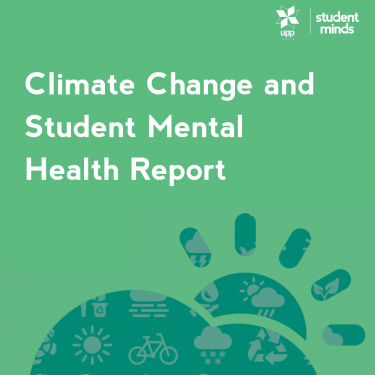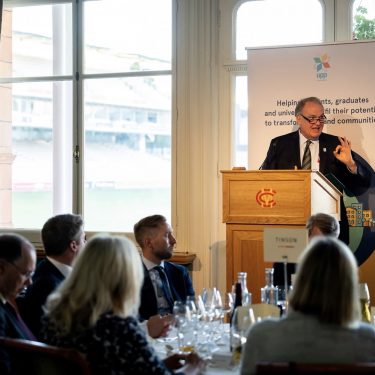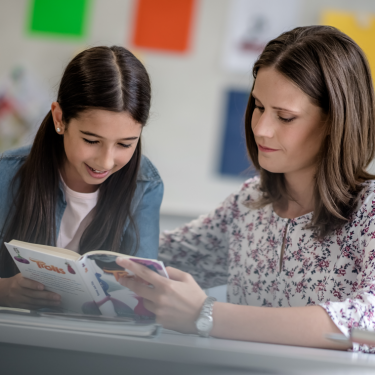New research from leading higher education charity the UPP Foundation finds that much of the student experience has bounced back from the impact of the pandemic and that students are satisfied with their time in higher education. But the research also uncovers alarming levels of loneliness, apathy, and disengagement among students at UK universities, driven by a ‘cost of learning’ crisis and an increasingly transactional relationship between students and their university.
The research included a series of focus groups and a poll of over 1,600 students delivered by Group GTI to build a picture of the student experience.
There are positive findings from the polling, which indicates that the academic experience has recovered well since Covid-19.
- 79% of students agreed that their university had given them all the support they needed to prepare for the start of term
- 74% of students were working at or above the academic level they expected to be at
- 74% of students agreed with the statement “I feel happy at university”
However, findings from the focus groups and backed up by polling data suggest that there is also a growing sense of apathy and disengagement amongst students, with a significant divergence between student expectations and the reality of university life. For example, the research found that 44% of students surveyed said they experienced loneliness during their time at university, that 44% of students were less engaged with extracurricular activities than they were expecting to be, and a quarter (25%) had never engaged at all.
Over a quarter (27%) of students indicated they would feel uncomfortable seeking support from their university if struggling with mental health, highlighting a potential barrier to addressing feelings of isolation.
The report also highlights challenges around work readiness, with 50% of students not having specific conversations or guidance about future careers from university staff. Meanwhile, 72% of students believe that their universities could do more to integrate workplace skills into the curriculum.
These insights point to a growing sense of apathy and a lack of agency among students over their university experience, leading to a reluctance to participate in both academic and extracurricular activities. This trend is exacerbated by real financial strain and insufficient maintenance loan support. This leaves students struggling to engage with fundamental aspects of university life and many taking up part-time work to support their studies.
The UPP Foundation is calling for immediate action to bridge the gap between student expectations and their actual experiences, emphasising the need to foster a more supportive and engaging environment. The UPP Foundation is also calling on political parties to include in their general election manifestos a better maintenance offer to students so that a generation of talent is not further undermined.
Commenting on the findings, Mary Curnock Cook CBE, Chair of the original UPP Foundation Student Futures Commission said:
“The lost learning crisis of the Covid years has been replaced by a ‘cost of learning’ crisis today. Students are increasingly prioritising onerous work commitments over attendance at lectures, seminars and careers education as well as missing out on the extra-curricular activities which round out the full university experience.
“The increasing unaffordability of full-time undergraduate education for students risks a generation of lost talent and a rising skills deficit.”
Richard Brabner, Executive Chair of the UPP Foundation – the charity which established the Student Futures programme said:
“The higher education sector should be commended for the work they have done to mitigate the longer-term impact of the pandemic on the student experience. But there are now worrying signs around student apathy and engagement. For universities to remain attractive and offer an excellent student experience when times are tough financially, we should take inspiration from the generous and collaborative effort made by colleagues, students and universities during the covid years to secure successful student futures.”
Notes to editors:
- The UPP Foundation was created in 2016 by UPP, the leading provider of on campus student accommodation infrastructure and support services in the UK. The UPP Foundation is a registered charity which helps students, graduates and universities fulfil their potential to transform lives and communities through funding pilot projects and hosting a thought leadership platform.
- The UPP Foundation ran the Student Futures Commission, Chaired by the former CEO of UCAS, Mary Curnock Cook CBE between 2021 and 2022. This Commission was in response to the impact of Covid-19 to the student experience.
- The research included a poll of over 1,600 students delivered by Group GTI and 8 focus groups with both home and international students and 8 in depth interviews with institution leaders. The project looks at the student experience two years on from the publication of the UPP Foundation Student Futures Manifesto in 2022.








